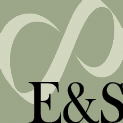Toolbox arms sustainability scientists
Add Summary

Finding sustainability in the world is hardly a simple proposition, and scientists are grasping at many tools.
So of course, science needs a toolbox.
Scientists at Michigan State University (MSU) unveil a new set of spatially explicit tools for describing and quantifying the telecoupling framework. Telecoupling refers to how distant connections between nature and human beings are growing ever tighter in a more globalized world—for good and for ill. The telecoupling framework was introduced in 2011 by MSU’s Jianguo “Jack” Liu at the Center for Systems Integration and Sustainability (CSIS). The telecoupling framework allows researchers to build models to understand socioeconomic and environmental interactions over distances.
Since then, the telecoupling framework has been used to examine international trade, species invasion, migration, foreign investment, global fisheries management, biodiversity conservation, land use change and more.
Telecoupling framework’s strength is in its ability to help integrate many system dynamics. The Telecoupling Toolbox is the first suite of geospatial software tools and applications developed to allow researchers to operationalize the framework and systematically explore the five major interrelated components of the telecoupling framework: systems, flows, agents, causes, and effects. It was designed by Francesco Tonini, a geospatial data scientist at MSU-CSIS.
“The innovative, free and open-source toolbox has been designed for a broad audience and can provide researchers and practitioners a useful platform to address globally important issues,” Tonini said. “The modular design of the toolbox allows the integration with existing third-party tools to assess synergies and trade-offs associated with policies and other local to global interventions.”
At present, the Telecoupling Toolbox includes a desktop component called ArcGIS Toolbox and a web-based application,GeoApp, offering users an array of options to pick from for their specific applications and needs.
The article, as part of a special feature on Telecoupling: A New Frontier for Global Sustainability in Ecology and Society, presents two case studies to showcase the toolbox applications – panda loans and tourism from China’s Wolong Nature Reserve to the rest of the world. Both scenarios are cast in a holistic light when the framework is applied, revealing hidden consequences crucial to policymakers.
Plans are in the works for more custom tools – think wildlife migration, food security, water resources – and development will co-occur for both desktop and web-based versions at the same time.
The development of the Telecoupling Toolbox and data collection have been supported by grants from the National Science Foundation, NASA, National Institutes of Health, Michigan State University, and Michigan AgBioResearch.



 Print
Print Email
Email

